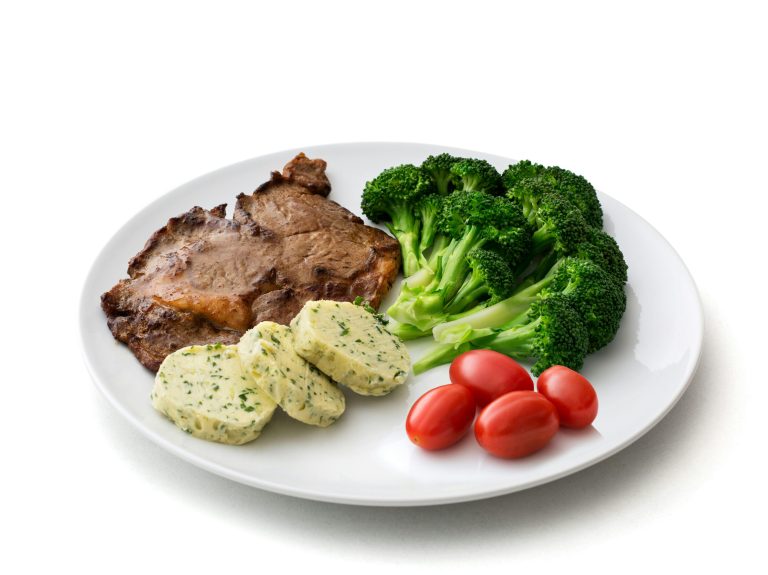A Comprehensive Overview of What Breaks A Fast: Food, Beverages and Supplements
One of the most frequently asked questions among fasting enthusiasts is, Does X break my fast? Coffee, BCAAs, MCT oil or protein powder may all make great daily morning starters; but coffee stands out among them all as being especially vital since billions of people start their days with it! Does X Break My Fast?…
One of the most frequently asked questions among fasting enthusiasts is, Does X break my fast?
Coffee, BCAAs, MCT oil or protein powder may all make great daily morning starters; but coffee stands out among them all as being especially vital since billions of people start their days with it!

Does X Break My Fast? The answer to this question depends on several factors, including both what was consumed and who is following a fasting regimen.
Some fasting protocols permit limited portions of calories. This opens up possibilities significantly.
Let’s begin by defining fasting, then apply what we know to a list of common beverages, supplements and sweeteners to determine whether they “break” fasts.
Fasting can be defined as an intermittent period in which macronutrient intake is restricted – in other words, you limit fat, protein and carb calories during this time.
Yet this definition does not specify any length or intensity of fasting, making it harder to tailor our fasts specifically. Let’s delve further into this form of dieting! Let’s discover its many flavors.
Consider intermittent fasting (IF) and extended fasting. Intermittent fasting, or time-restricted feeding, generally refers to any fast lasting 12-36 hours; any faster-than-that period is classified as extended fasting.
Within these categories are different fasting protocols. One such fasting regimen, called OMAD (one meal a day), involves eating all your daily calories at one sitting before going the rest of the day with no further consumption of calories.
On a 5:2 protocol, however, you eat 25% of your normal calories two times each week as part of a modified fast, which has been found to produce similar weight loss, insulin sensitivity and other metabolic improvements as zero-calorie fasts.
Fasting Mimicking Diet (FMD), developed by longevity researcher Dr. Valter Longo, involves cutting back calories five days every month for at least 30 days to provide metabolic benefits in humans.

At first glance, fasting does not entail total caloric restriction. Let’s delve deeper into what it means to break a fast.
What Does Break a Fast Mean? Breaking a fast will depend on your fasting protocol, but generally speaking eating calories breaks it.
Consuming calories shifts your body from fasting mode into growth mode – both essential for optimal human development.
Fasting mode involves burning fat, producing ketones, and activating an autophagy-type program in cells to recycle themselves; in contrast to growth mode where you store fat, build muscle and repair tissue – it’s all a cycle – but one which takes only hours per day for full effect.
Why does consuming calories put you into growth mode? There may be various reasons, with insulin likely playing the most prominent role.
Insulin is a growth hormone, helping you build muscle and store energy for later use. After eating carbohydrates-rich meals, insulin rises rapidly to end your fast.
Another key player is known as mTOR, a genetic growth pathway activated by eating protein and carbs. As this pathway increases, another one known as AMPK (linked with fasting benefits) decreases.
Consuming calories–particularly carbohydrate and protein calories–will activate systems to break a fast. As one might imagine, however, quantity matters here as much as quality does.
Keep this in mind as we explore our list of comestibles. A handful of grains won’t have much effect, but several scoops could.
Does It Break A Fast (DIBAF)
Examine this list and discover.
Everyone wants to know whether coffee breaks a fast. While purists prefer water-only fasts, coffee being non-caloric could probably still work fine and it has even been shown to induce autophagy in mice so it could actually enhance your fast.
DIBAF? Not likely. Just like coffee, tea contains no calories and loads of antioxidants – nothing to spike insulin or mTOR or break a fast!
Bone broth doesn’t derail DIBAF? No. Although its constituent amino acids (like glycine) do contain protein calories, their impact on growth pathways tends to be smaller compared to leucine or valine amino acids. A cup or two shouldn’t break your fast.
DIBAF?
Not significantly.
Diet soda
Nowhere close. In terms of ingredients used to manufacture it, none have ever shown to increase insulin or mTOR activity either – nor will they.
Water should likely be on this list since some individuals practice “dry fasting”. But given that fasting causes a diuretic effect (i.e. fluid loss more rapidly), going dry could be dangerous and dehydrating quickly can have lasting repercussions for health. Stay hydrated!
Supplements and Sweeteners DiBAF?
No.
MCT oil, butter or creamer chaudiere Does incorporating fat into your morning coffee break the fast? Technically yes; however due to its minimal insulin impact this shouldn’t significantly disrupt it.
Why did DIBAF fail meaningfully?
significant.
Branch-Chain Amino Acids (BCAAs)
Leucine, isoleucine and valine are three amino acids (building blocks of proteins) known as BCAAs that stimulate muscle synthesis through stimulating mTOR and activating mTOR, thus making them best avoided during fasts.
DIBAF?
Yes.
Protein powder
As in the previous section, increasing protein consumption increases both mTOR and insulin levels.
Are You Eligible for DIBAF?
Yes.
Electrolytes
While fasting, you will expel electrolytes like sodium and potassium at higher rates through your urine. Replacing these minerals may help prevent fatigue, weakness, headaches and cramps associated with Keto flu symptoms; just make sure that you select an electrolyte product without added sugar for best results.
DIBAF? No. Aspartame, sucralose, allulose, stevia, monk fruit and erythritol do not significantly raise insulin levels and thus should not interfere with fasts.
Likely not.
Multivitamins
No two multivitamins are alike, and it is important to carefully review their ingredients to identify any that could trigger an insulin response. Tablet-style multivitamins with only vitamins and minerals typically won’t break your fast, while chewable or gummy forms might contain sugars or proteins which increase insulin levels and break your fast. In any event, many find multivitamins cause digestive discomfort when taken on an empty stomach – for this reason you might wish to wait until feeding time to take one.
What goes into DIBAF? That depends on its ingredients.
As with other supplements, this all depends on their ingredients. If they contain insulin-reactive sweeteners or more than a handful of calories, they could potentially break a fast. But vitamins, minerals, or small quantities of herbs shouldn’t break it. Furthermore, certain fat soluble supplements (particularly those intended to improve absorption with food) should still be taken during your feeding window even though they won’t break your fast.
How Can DIBAF Benefit You? (Part B)?
Are You Wondering Which Foods Will Break a Fast
Not sure what foods will best break your fast? Don’t overthink it; contrary to what magazines near the checkout at your supermarket may suggest, breaking a fast doesn’t require fermented siberian cabbage soup or anything out-there to do the job! Simply start slowly by starting with light foods like salad and fruit while resisting overeating urges.
Here are a few ideas of gentle foods to break a fast on Keto:
Smoothies, cooked vegetables topped with oil (avoid raw cruciferous veggies), salad drizzled with extra virgin olive oil (EVOO), small amounts of poultry and fish as well as nuts nut butters soups eggs avocados bone broth are some ways to fast effectively. Don’t Feel Confused About Fasting
People often worry that eating coffee, tea, MCT oil, bone broth or sweeteners such as Stevia will significantly disrupt a fast. Unfortunately, however, such items do not contain enough calories or metabolic effects to significantly undermine such efforts.
Fasting doesn’t need to be all or nothing – you can still reap its benefits while restricting calorie consumption.
Keep this list in mind and don’t worry too much about breaking a fast – just enjoy life more that way!
Carb Manager’s Intermittent Fasting Tracker makes managing non-eating periods just as simple and effective for weight management and health as tracking meals daily. Premium members can choose popular fasting programs like 16:8 and OMAD as well as set custom fasting/eating windows, count down timers and more – it makes managing fasts effortless!
As with any significant diet or lifestyle change, we recommend working closely with a registered health professional before making significant modifications to your diet or lifestyle. Fasting should not be attempted by those with an eating disorder history, pregnant and breastfeeding women as well as anyone under 18.


